In 1999, during his 17th year as president of Wesley Theological Seminary, Doug Lewis sensed that the institution was in a good space for him to start transitioning out of office. The new strategic plan was in place; a successful capital campaign was wrapping up. But when he approached the board with his intentions, they didn't see it in the same light. Lewis remembers that their reaction was, "We're doing well; don't rock the boat."
"I replied with a quote from my mother," says Lewis. "You ought to leave the party while you're having a good time."
That advice is both pithy and wise. Party-goers who are having a good time are full of energy, enthusiasm, and interest, while party hosts provide fascinating company, plenty of good food and drink, and a pleasing atmosphere.
Theological education might not always feel like a party, but a seminary and its president are both well served if the leader knows the right time to make a graceful exit. And the board plays that important role of host, helping keep the party going and bidding a fond farewell to even the most adored guests while welcoming new ones in their place.
Perhaps "guest" isn't the way most onlookers would think of a president, but the reality is that no leader stays forever. "Every president is an interim in a sense," says William McKinney, president emeritus of Pacific School of Religion in Berkeley, California.
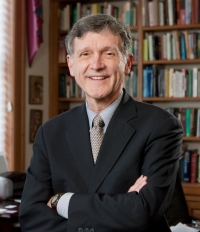 |
|
Bill Leonard
(Photo courtesy of Ken Bennett)
|
That includes even venerable leaders. "I have seen too many leaders stay too long," says Martha Horne, dean and president emerita of Virginia Theological Seminary in Alexandria, Virginia. "People would say, 'Good old so-and-so. He should have checked out sooner.' I didn't want anyone to be in the position to think I had overstayed my welcome."
Bill J. Leonard, the founding dean of the School of Divinity at Wake Forest University, agrees - so much so that he embraced a five-year term limit (with a one-time option to renew) that was instituted by a new university administration halfway through his deanship. "I didn't want to be one of those administrators of whom people said, 'Is he still dean?'"
Of course, it takes a while to build up that reputation as an effective, dependable leader. "I was ready to resign every three weeks or so at first," says Leonard. "Being a dean is hard work, and I don't think there's a dean or president living who hasn't felt that."
What are you looking at?
"There were times in my tenure I desperately wanted to leave," says Brian C. Stiller, president of Tyndale University College and Seminary from 1995 to 2009. "Normal circumstances would tell me those feelings are indicators it's time to go. But I couldn't leave on two grounds: One, I had a very clear inner call to this bankrupt school. And two, I had an agreement with the chair to see it through. If I had discerned leaving on the basis of feeling, that would have been wrong."
But discernment based on a combination of personal and institutional factors is realistic. And eventually the issue isn't whether to leave, it's when. For Lewis, it meant staying a year longer at the request of the board, which wanted him to finish the capital campaign and a few other projects. For Horne, that meant timing her departure far enough out not to interfere with the retirement of the board chair and the vice president of finance - while she also remained faithful to her understanding of being called to something new.
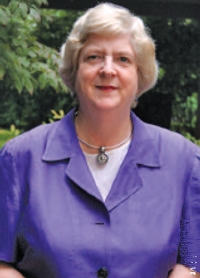 |
|
Martha Horne
(Photo courtesy of Jay Blossom)
|
"I felt that [role] was one season of life that was reaching an end," she says. "I really sensed it was time to work on another season in terms of how I would order my time and priorities."
That sentiment rings true for other past presidents: "Then and now, I just had a sense it was time to move on for me as a pastor and teacher and person engaged in research and writing," says Leonard.
"There were no financial or personality-related reasons," says Dennis Voskuil of Western Theological Seminary. "But I sensed I was getting weary of the routine and not as excited about the new challenges. I was determined not to go out on the way down, and I wanted to have time to teach full time."
"I'd hoped there was something left besides that role in me - scholar, husband, friend, minister of the Gospel," says McKinney. "That was the biggest relief for me, to discover that there are those pieces left."
Doubts and delusions
But the relief of finding oneself post-presidency often doesn't come easily. For Horne, the seminary was not just her job; it was home. She and her family had lived on campus for 21 years. "I love the seminary, and because there was nothing pushing me to leave it, I was concerned that on the other side of the decision, after I'd gotten a little rest and a little distance, I would regret it," she says, pausing just a moment. "I have not, by the way."
"Once you decide not to stay, all the uncertainties come up," says McKinney. "The day I was no longer president of PSR, I was without a job, without insurance. People who have terms that end at age 61 or 62 may not have a fallback position. There are great temptations: a comfortable salary and a nice house and people who want to make you happy, at least most of the time. If you're not really careful, you become the role. It meant something to people, to the school. But you don't want to be reduced to that."
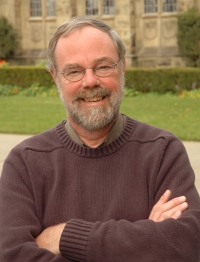 |
|
William McKinney
(Photo courtesy of Hilary Marckx)
|
All of that can contribute to the sense some presidents have that they need to stay on for continuity and control. "You convince yourself that you have to get the school through one more round of something - this new program, that new partnership," says McKinney. "That's delusionary."
"Sometimes people think they aren't expendable. But everyone is," says Carnegie Samuel "Sam" Calian, president emeritus of Pittsburgh Theological Seminary. "There's the temptation to believe that if I stay on, I can improve the school in x, y, z way - but maybe part of the problem is that you need to step down."
But some of the problems that are looming largest in today's economic climate are financial, and it can feel like the job boils down to money alone. "Presidents today are just strapped," says Lewis, who consults with current leaders in theological education through his work as an In Trust Governance Mentor. "People are mad at them. Dealing with that pressure in a constructive manner is critical."
But if a president is considering stepping down for financial concerns, "it probably means you're just trying to justify what you want to do," says Calian. "The reality has to be shaped by God working in your life, and the life of the community, rather than be shaped by financial concerns.
"The main thing the president of a school needs to keep in mind is that the school doesn't belong to you; it belongs to God. And it's always a team effort - you cannot accomplish anything by yourself."
Trusted advisers
At schools without set term lengths, most former presidents seem to agree that an effective president's decision to leave office should be his or hers to make. But strong presidents know better than to reach the decision alone.
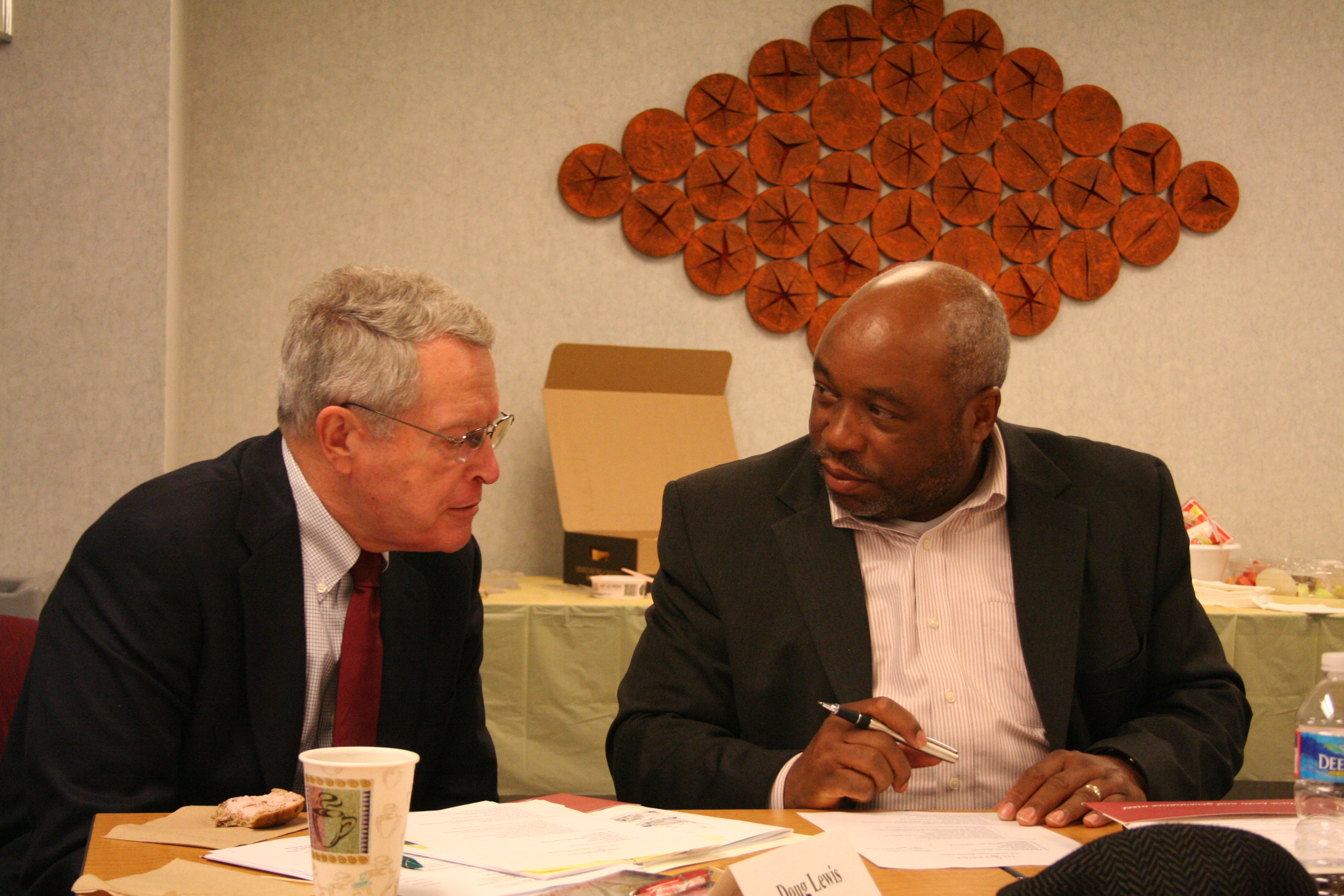 |
G. Douglass Lewis (left) shown here in conversation with In Trust Governance Mentor Curtis A. Haynes
(Photo courtesy Jay Blossom) |
One of the most important tools that presidents can have in their discernment process comes courtesy of the board: "The regular, direct, evenhanded feedback I received from the 360% evaluations was wonderful and extraordinarily helpful," says McKinney. The evaluations, which solicited input from faculty and students as well as board members and other stakeholders, strengthened his leadership but also helped inform his eventual decision to leave office.
"When presidential evaluation and assessment are done regularly and done well, they becomes catalysts for conversation about transition, about the future," says Lewis. This ultimately makes the inevitable announcement of a president's decision to leave less stressful for everyone.
Another important means to help a president discern when to start thinking about leaving is by establishing a group of honest, compassionate people who care about the president as an individual, who understand some of the institutional context, and who will provide a confidential sounding board for a president. Three years before he left the presidency of Western, Dennis Voskuil handpicked about a dozen people, including his wife, a few seminary leaders, and a couple of friends ? "People who knew me and cared for me and the institution." Then one evening they all gathered for a meeting hosted by Voskuil's "incredibly capable and supportive" board chair.
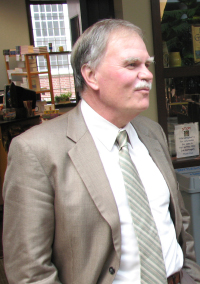 |
|
Dennis Voskuil
(Photo courtesy of Brandon Beebe)
|
"We needed to think about a succession process, and this was the first time I talked about it," says Voskuil. "I was under no pressure to leave, and I knew these were people who didn't want to see me do something I didn't want to do. I was able to do this without any sense that things were deteriorating," says Voskuil.
At Wake Forest, Leonard's conversation started with his spouse and continued with a small group of close friends, some connected to the divinity school and some not. "These were people who had been helpful and had offered great insight with me in starting the school; they knew the history and understood some of the context of the school."
Finally, he spoke to the provost who, in his university-embedded school, essentially had the same role the board plays at freestanding theological schools. "She and I talked very helpfully about process for closure," says Leonard, who took a yearlong sabbatical after leaving office and now is back at the divinity school teaching church history and Baptist studies.
"I was quite pleased with the process," says Leonard, who extended a year after his term finished to wrap up several projects. "The extra time helped me to have some closure, to wind down. If I had left before that, it would have been OK, but I don't think it would have given me the sense of completeness I had in leaving when I did."
If this had been a party, it would have been considered a success.
Advice from those who've been there
Making the decision to leave means weighing countless personal, familial, and institutional priorities and circumstances. While every situation is unique, here are some bits of wisdom offered by former presidents who have made the transition.
|
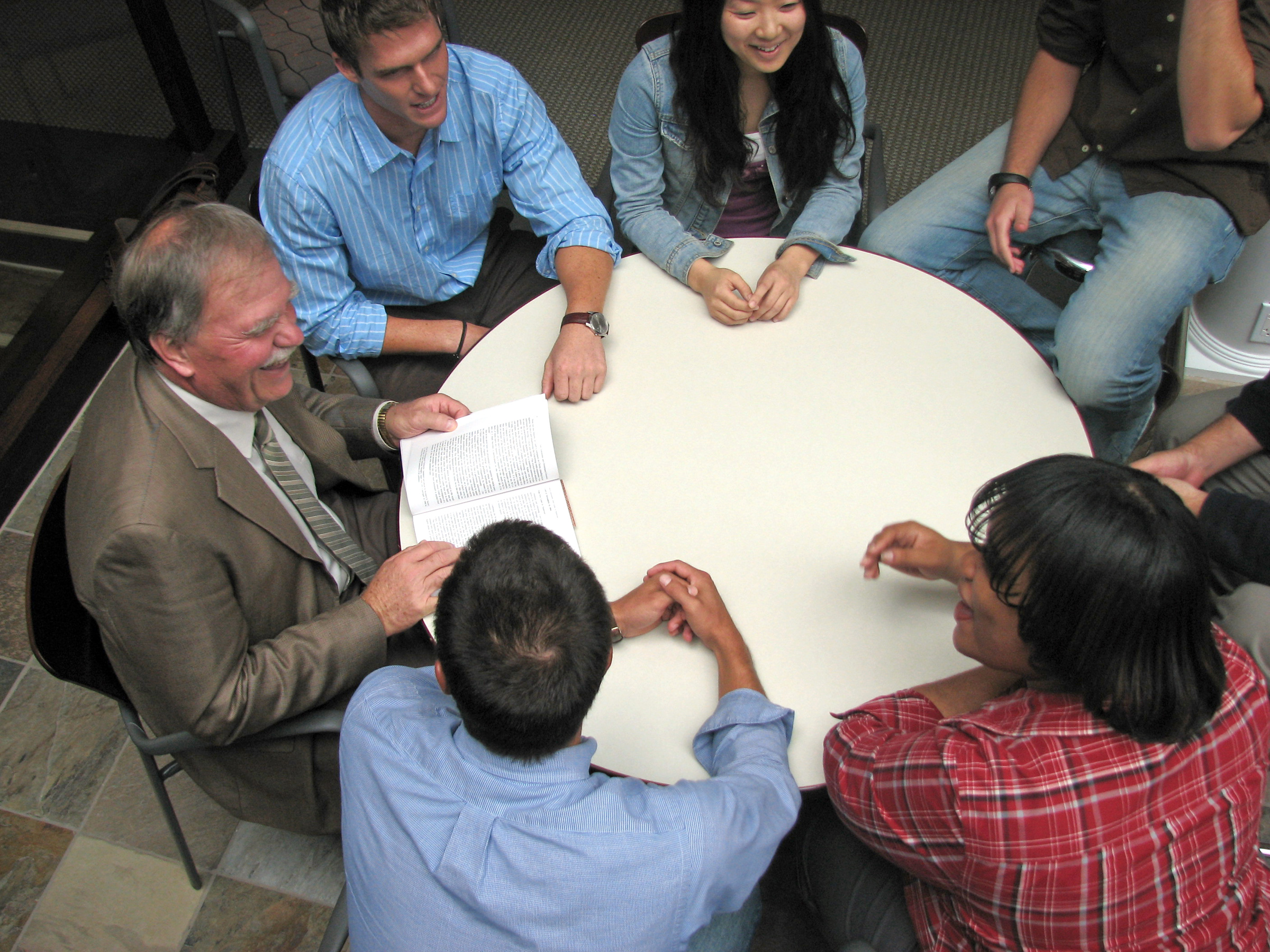
|
|
Dennis Voskuil leads seminarians in a discussion.
(Photo courtesy of Brandon Beebe)
|
-
Carnegie Samuel "Sam" Calian, after 25 years as president of Pittsburgh Theological Seminary, left office in 2006: "You've got to have someone who's honest with you. Not negative - honest. Someone to help you determine if God has another purpose for you, or if you want to die in that post."
-
Martha Horne, after 13 years as dean and president of Virginia Theological Seminary in Alexandria, Virginia, left office in 2007: "One of the essential steps is to look at the tasks that need to be done for the good of the institution. Then ask yourself if these are tasks you feel prepared to do, and monitor your own level of enthusiasm and excitement regarding what you know needs to happen."
-
Bill J. Leonard, after 14 years as founding dean at Wake Forest University School of Divinity in Winston-Salem, North Carolina, left office in 2010: "I had friends tell me later that they were really concerned that I didn't engage during the sabbatical year [immediately after leaving office], but that later they appreciated the fact that I was so consistent in staying away. It helped convince them that I could let it go."
-
G. Douglass Lewis, after 20 years as president at Wesley Theological Seminary in Washington, D.C., left office in 2002: "Have a sense of the rhythm of the institution, and think about whether you're the person to lead the transition from one [institutional] phase to another. Constantly ask: 'Where is my energy these days?' and 'Am I having fun?'" Also, he and the seminary's current president, David McAllister-Wilson, talk regularly, "but even today I don't offer any advice I'm not asked for."
-
William McKinney, after 14 years as president of Pacific School of Religion in Berkeley, California, left office in 2010: "The question you need to ask yourself every day is whether you feel that you are doing the most important work on earth in the most important place on earth. If not, it's time to look somewhere else."
-
Brian C. Stiller, after 14 years as president of Tyndale University College and Seminary in Toronto, left office in 2009: "What I didn't expect was the degree to which I lost my identity when I stepped down. I had known, I had planned for it - but I still had to work through that sense of loss. I'd recommend the book Transitions by William Bridges to anyone leaving any sort of leadership - and I encourage every departing president to find someone to help process what they're feeling."
-
Dennis Voskuil, after 14 years as president of Western Theological Seminary in Holland, Michigan, left office in 2008: "I suspect some presidents wait too long in terms of starting the discernment process. Don't wait. Find people whom you trust and who care about you to talk with."
Tips for the board once the decision's been made
All is well at the seminary. Then one day, unexpectedly (always unexpectedly, even if there have been some rumblings), the president announces plans to step down next year. Now what?
The board's response may range from disbelief to paralysis - from pressuring the president to reconsider, to a batten-down-the-hatches rush to undertake a search. But one detail that shouldn't get overlooked is scheduling some time for the board chair or executive committee to sit down with the outgoing president and hammer out the delicate details of the transition and closure processes. Here are a few questions to get the conversation flowing:
-
What flexibility does your proposed timeline have?
-
What are your goals before you depart?
-
How do you imagine your role in the search process? Would you like to suggest potential successors or leave it to the board?
-
How involved do you want to be at the beginning, middle, and end of the search? Do you want to meet with finalists or wait until a decision is made? How would you prefer candidates' campus visits be handled?
-
With whom do you want to communicate regarding the institution's future leadership needs? The incoming president, the board chair, cabinet, other?
-
Do you want to continue teaching, serve in an advisory capacity, or have some other relationship with the institution after you leave office? How can we help facilitate that more complicated transition process?
-
How would you like the conclusion of your leadership to be observed?
Candid, careful dialogue between presidents and boards (or deans and provosts) is essential for all parties to consider the departure to be smooth and successful.
"People can get so hurt in these transitions," says Leonard. "I've seen many situations where the communication was not clear, where conversation was not consistent enough." So be sure to schedule regular follow-up time with the outgoing leader to check in about how he or she is handling the transition process.